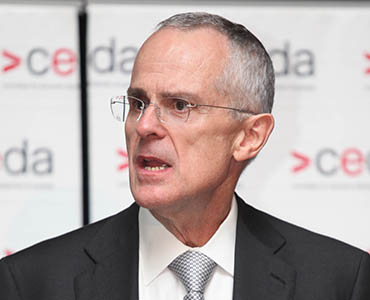Explore our Climate and Energy Hub
23/02/2017
 “One issue that continually emerges is whether the penalties against large businesses are enough of a deterrent and more than just the cost of doing business,” Mr Sims said.
“One issue that continually emerges is whether the penalties against large businesses are enough of a deterrent and more than just the cost of doing business,” Mr Sims said.
Mr Sims quoted the joint decision by Justices Jagot, Yates and Bromwich, stating: “The objective of any penalty in this case must be to ensure that… ‘would-be wrongdoers’ think twice and decide not to act against the strong public interest.”
Elaborating on the issue, he said “We see companies breaching the Act, or coming very close to it, and too often not, in our view, understanding the seriousness of the issues involved. We believe the current low civil penalties contribute to this.
“We are seeking to change this, and we are seeing encouraging signs from the courts to assist us.”
Mr Sims said that in 2017 the ACCC will be making “concerted efforts” to make sure those who work for large companies are meeting their obligations under competition and consumer law.
“We will also continue to advocate for legislative penalties under Australian Consumer Law that effectively deter larger businesses from misconduct, particularly through our participation in the current ACL review,” he said.
Detailing the rationale for the organisation’s focus on larger businesses, Mr Sims said, “We are not always best placed to deal with particular consumer and small business issues.
“State and territory fair trading agencies and ombudsman services, small business commissioners and even police agencies, are often best placed to handle issues or complaints.
“It should not be a surprise that our focus will increasingly gravitate towards larger businesses.
“Their footprint and impact will be more significant, and their influence on market behaviour is often telling. It is also part of our reason for being, to focus on the national landscape.”
Competition priorities were another priority area detailed by Mr Sims. Under this umbrella he listed the activity of cartels.
“Last year was significant for us with two companies charged under the criminal cartel provisions of the Act,” Mr Sims said.
“This is the first time criminal cartel charges have been laid in Australia in a little over 100 years. That is, since a coal mining and shipping cartel prosecution in 1910.
“Our investigations into other alleged cartel participants are well advanced, and we expect to see more criminal prosecutions over the next couple of years.”
Mr Sims concluded by saying that 2017 would be an exciting year for the ACCC, noting that in addition to the priority areas outlined, the Commission would also have the Harper law changes coming before Parliament and the ACL Review.
Read Mr Sims’s speech here.
